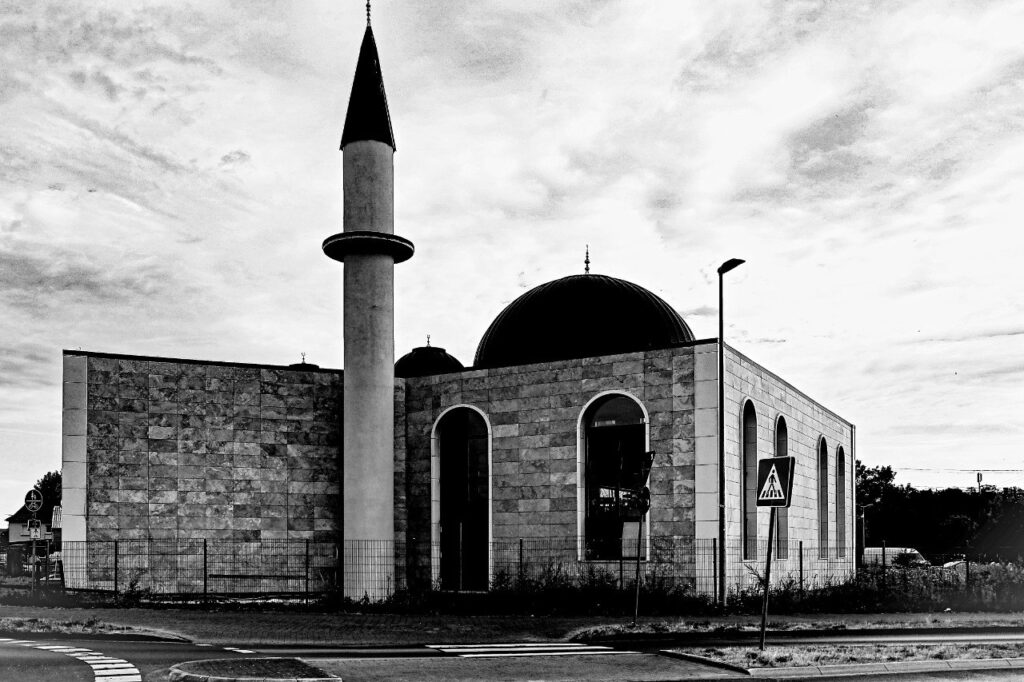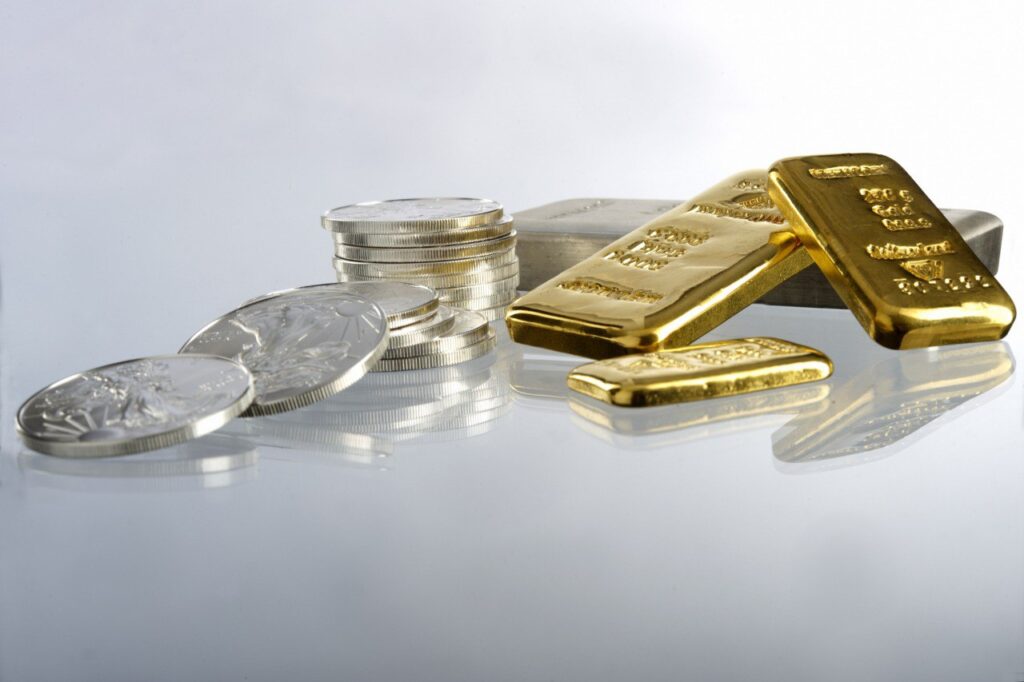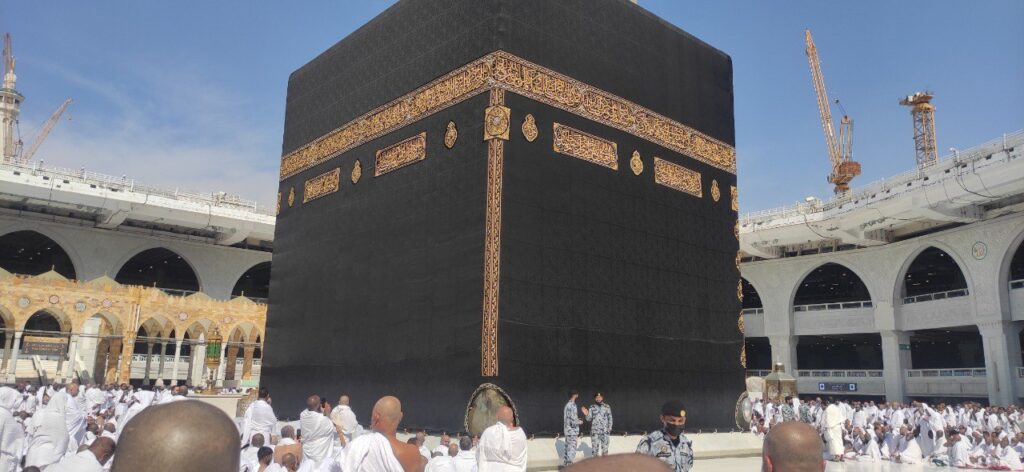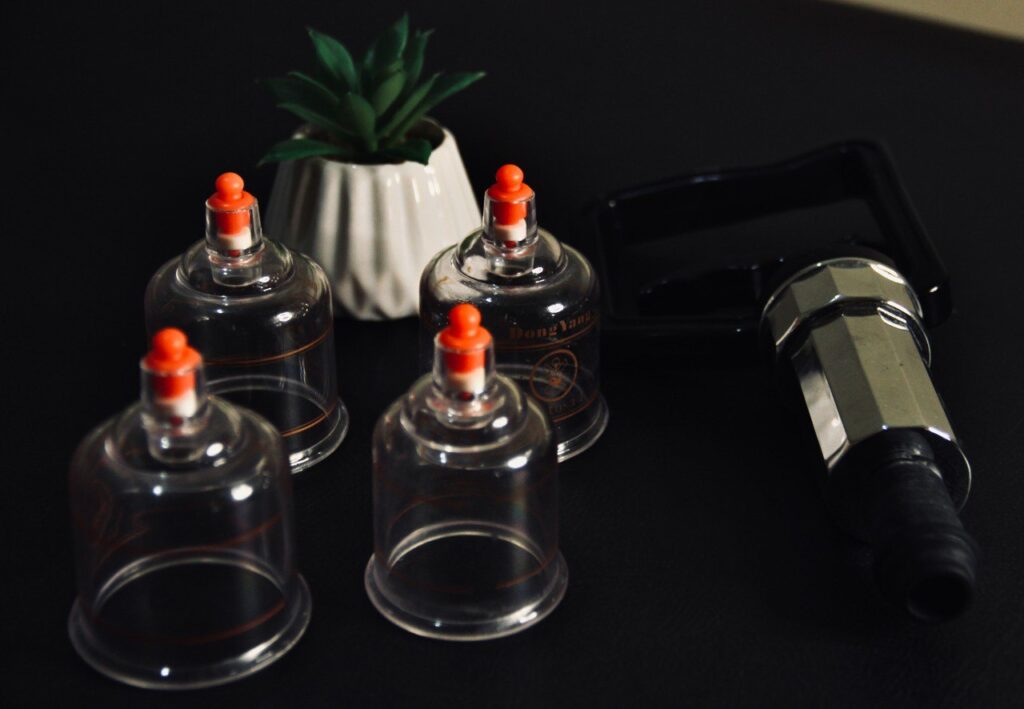Guidance regarding basic Islamic issues – which Hazrat Amirul Momineen, Khalifatul Masih Vaa has given on various occasions in his written correspondence and during MTA programmes – is being officially published below for everyone’s benefit.

Hijama, cupping therapy and bloodletting
Someone from Syria asked Hazrat Amirul Momineen, Khalifatul Masih Vaa about the Jamaat’s stance on cupping (hijama), saying people considered it a sunnah of the Holy Prophetsa. He asked, if the Jamaat also regards it as correct, what the details about it are.
Huzoor-e-Anwaraa, in his letter dated 7 July 2022, provided the following answer to this question:
“Cupping, also known as hijama, was a common method of treatment in ancient times. As this treatment method was prevalent during the time of the Holy Prophetsa, he and his Companions took advantage of it as and when required. However, it is not such a religious matter that it can be said that since the Holy Prophetsa adopted it, it is now obligatory for every Muslim to abandon modern treatment methods in favour of cupping.
“Yes, if someone still wants to benefit from it as a treatment for some ailment in this era, there is no harm in it. Similarly, if someone adopts this method of treatment with the intention that since the Holy Prophetsa had adopted it, I will also adopt it to fulfil the sunnah of the Holy Prophetsa in treating a disease, then such an act can be hoped to be rewarded by Allah the Exalted under the guidance of the Holy Prophet’ssa that is إِنَّمَا الْأَعْمَالُ بِالنِّيَّاتِ i.e., ‘Actions are judged according to one’s intentions.’
“As for the details about cupping, the authentic books of Hadith have narrated that the Holy Prophetsa used it as a treatment for illnesses and discomforts, whether during travel or while at home, whether in a state of ihram or fasting, wherever it was required. The Holy Prophetsa had cupping performed on his head. He also paid wages to the person who performed the cupping. (Sahih al-Bukhari, Kitab at-tibb; Kitab al-hajj; Kitab as-sawm)”

Good deeds during Dhul-Hijjah and Ramadan
Someone from the Netherlands wrote to Hazrat Amirul Momineen, Khalifatul Masih Vaa, stating that according to authentic ahadith, the deeds performed during the first ten days of Dhul-Hijjah are highly pleasing to Allah the Exalted. The person asked, “What is the relationship between these first ten days of Dhul-Hijjah and the last ten days of Ramadan? And is the commandment to increase worship in these days only applicable to those fortunate enough to perform Hajj, or does it apply to all Muslims?”
Huzoor-e-Anwaraa, in his letter dated 7 July 2022, provided the following reply to this question:
“In both the Holy Quran and the Hadith of the Holy Prophetsa, no comparative assessment has been specifically presented concerning the virtues of the days in Dhul-Hijjah and Ramadan. However, both the months and the acts of worship performed therein are described as being imbued with an abundance of blessings and virtues. For instance, the Holy Quran states that fasting during the month of Ramadan is obligatory for believers; that the Quran was revealed in this month; and that fasting therein facilitates closeness to Allah the Exalted and the acceptance of supplications. (Surah al-Baqarah: 184-187) Moreover, there are glad tidings about the arrival of a night in this month on which the angels and the Spirit descend, a night that is better than a thousand nights and during which peace prevails until its end. (Surah al-Qadr: 4-6)
“Likewise, numerous virtues of the blessed month of Ramadan have been narrated in ahadith. For example, the first ten days of this month are designated as days of mercy; the second ten days as those of forgiveness; and the third ten days offer deliverance from Hell. (Shu‘ab al-Iman by Imam al-Bayhaqi, Fada’ilu shahri ramadan, Azallakum shahrun ‘azimun, Hadith 3455) In the final third of Ramadan, there are numerous narrations about the Holy Prophet’ssa sunnah of regularly observing i‘tikaf and his exceptional devotion and exertion in acts of worship. (Sahih al-Bukhari, Kitab al-i‘tikaf, Bab al-i‘tikafi fi l-‘ashri l-awakhir; Sahih Muslim, Kitab al-i‘tikaf, Bab al-i‘ijtihadi fi l-‘ashri l-awakhiri min shahri ramadhan)
“Hazrat Mirza Ghulam Ahmad, the Promised Messiah and Mahdias, who was the most ardent devotee of the Holy Prophet Muhammadsa, has also expounded upon the virtues of the month of Ramadan. He states:
شَہۡرُ رَمَضَانَ الَّذِيۡۤ اُنۡزِلَ فِيۡہِ الۡقُرۡاٰنُ
“‘[‘The month of Ramadan is that in which the Qur’an was sent down.’] (Surah al-Baqarah, Ch.2: V.186)
“‘This single verse elucidates the grandeur of the month of Ramadan. Sufis have written that this month is excellent for the illumination of the heart. Frequent spiritual visions [mukaashifaat] occur during this time. Prayer [salat] purifies the soul, and fasting [sawm] illuminates the heart. Purification of the soul means achieving detachment from the base desires of the nafs-e-ammarah. Illumination of the heart indicates that the door to kashf opens, allowing one to see God.’ Thus, the phrase ‘اُنۡزِلَ فِيۡہِ الۡقُرۡاٰنُ’ indicates this very meaning. (Al Badr, Issue No. 7, Vol. 1, 12 December 1902, pp. 52)
“Furthermore, there is abundant mention of the virtues of Dhul-Hijjah in the ahadith. On one occasion, the Holy Prophetsa stated that the virtuous deeds performed in Dhul-Hijjah are even more beloved to Allah the Exalted than Jihad in His way, the only exception being the mujahid, who goes forth, risking his life and wealth, and brings nothing back. (Sahih al-Bukhari, Kitab al-jumu‘ah, Bab fadli l-‘amali fi ayyami t-tashriq) He also said that the fasting of each day of Dhul-Hijjah’s first ten days is equivalent to fasting for one year, and the worship during each of its nights is like the worship on the Night of Decree. (Sunan at-Tirmidhi, Kitab as-sawmi, Bab ma ja’a fi fi l-‘amali fi ayyami l-‘ashar) Likewise, fasting on the Day of ‘Arafah is said to atone for the sins of the previous and the coming year. (Sunan at-Tirmidhi, Kitab as-sawmi Bab ma ja’a fi fadli sawmi yawmi ‘arafah)
“The Promised Messiahas, while speaking about the virtues of Hajj, stated:
“Islam has […] designated Hajj as an expression of a state of love. […] In Hajj, all elements of love are present; sometimes the intensity of love is such that even the need for clothing becomes irrelevant. Love is also a form of madness, in which the preoccupation with one’s clothes no longer remains relevant. […] In essence, the archetype that captures the epitome of love is evident in Hajj; one shaves one’s head, engages in running, and even the ‘kiss of love’ is represented, having been metaphorically incorporated across all of God’s ordinances. Moreover, the pinnacle of love is manifested in the act of sacrifice.’ (Al Hakam, Issue 26, Vol. 6, dated 24 July 1902, p. 3)
“It is essential to bear in mind that the virtues of the months of Dhul-Hijjah and Ramadan have been expounded upon in general terms, and sometimes the Holy Prophetsa elucidated them based on the circumstances of the questioner or the situation at hand. For instance, in response to one person’s query, the Holy Prophetsa declared faith in Allah and His Messengersa to be the best deed. (Sahih al-Bukhari, Kitab al-hajj, Bab fadli l-hajji l-mabrur) On another occasion, he said that the best righteous deeds are those that are done consistently, no matter how small. (Sahih al-Bukhari, Kitab al-riqaq, Bab al-qasdi wa l-mudawamati ‘ala l-‘amal) For another individual, offering prayers on time and good treatment of parents was termed the best deed. (Sahih al-Bukhari, Kitab at-tawhid, Bab wa samma n-nabiyyusa as-salata ‘amalan), and for yet another, prolonged standing in prayer was declared the best deed. (Sunan Abi Dawud, Kitab as-salah, Bab iftitahi salati l-layli bi-rak‘atayn) For another person, a faith without any doubt, a jihad without any betrayal, and a Hajj filled with good deeds were defined as the best actions. (Sunan an-Nasa’i, Kitab az-zakah, Bab juhdu l-muqill) And for someone else, “الْعَجُّ وَالثَّجُّ” i.e., a good deed in which there is frequent talbiyah and sacrifice, was declared the best deed. (Sunan Ibn Majah, Kitab al-manasik, Bab raf‘i s-sawti bi t-talbiyah)
“Therefore, the virtues mentioned in the Quran, Hadith, and the sayings of the Promised Messiahas regarding the months of Dhul-Hijjah and Ramadan indicate their distinct significance and unique ranks. In some respects, the acts of worship performed during the blessed month of Ramadan, the divine commandments revealed in this month, and the blessings that descend in it seem to hold greater significance. However, from certain perspectives, the efforts made for the pleasure of Allah in Dhul-Hijjah and the ensuing divine blessings and grace are considered more meritorious. Hence, on one occasion, the Holy Prophetsa stated:
سَيِّدُ الشُّهُورِ شَهْرُ رَمَضَانَ وَأَعْظَمُهَا حُرْمَةً ذُو الْحِجَّةِ
“‘The chief of all months is the month of Ramadan, and the most inviolable and sacrosanct of them is the month of Dhu al-Hijjah.’ (Shu‘ab al-Iman by Imam al-Bayhaqi, Takhsis ayyami l-‘ashri min dhi l-hijjah, Bab sayyidi sh-shuhuri shahru ramadan wa a‘zamuha hurmatan dhu l-hijjah, Hadith 3597)
“As for those fortunate enough to have been granted the ability to perform Hajj, they should make a concerted effort to perform all obligatory and voluntary acts of worship at the holy sites in accordance with the established rites of Hajj. And those who are not able to go for Hajj should strive to perform the acts of worship related to Dhul-Hijjah to the best of their ability, just as the Holy Prophetsa used to do when not performing Hajj.”

Hajj and reciting Quran during menstruation
A lady from Canada enquired from Hazrat Amirul Momineen, Khalifatul Masih Vaa, whether it is permissible to recite Quranic supplications from memory during days of menstruation. Furthermore, if menstruation were to begin during the course of Hajj, would one be excused from performing tawaf?
Huzoor-e-Anwaraa, in his letter dated 7 July 2022, provided the following reply to her question:
“A woman may recite Quranic supplications by heart during her menstruation; there is nothing objectionable in this. I have previously provided detailed answers on several occasions concerning this matter, clarifying that a woman may recite any portion of the Quran that she knows by heart by way of zikr [i.e., remembrance and reflection in her heart] during her menstrual days. Additionally, if needed, she may hold the Quran wrapped in a clean cloth and read certain passages for the purpose of citing references or teaching children. However, she is not permitted to engage in formal recitation. Likewise, during these days, although a woman is not permitted to engage in formal recitation using a computer or similar devices where physical contact with the Quran is not required, if there is a need, for instance, to find a reference or to show a reference to someone, she may use the Quran on such devices. There is no issue with this.
“Hazrat Musleh-e-Maudra states in the commentary of the following verse of Surah Maryam:
فَکُلِيْ وَاشْرَبِيْ وَقَرِّيْ عَيْناً فَإِمَّا تَرَيِنَّ مِنَ الْبَشَرِ أحَداً۔۔۔
“[‘So eat and drink, and cool (thy) eye. And if thou seest any man…’] (Surah Maryam, Ch.19: V.27)
“He states with regard to the issue at hand:
“‘From this verse, it is also ascertained that during postnatal bleeding and menstruation, divine remembrance [zikr] is not prohibited. People mistakenly think that even in one’s heart, zikr cannot be made in such a state. However, if zikr were to be prohibited, spirituality would entirely die. Contrary to this, some people even deem quiet verbal recitation of zikr to be permissible.’ (Tafsir-e-Kabir, Vol. 5, Commentary on Surah Maryam, p. 187)
“Likewise, during the inaugural session of the first Jalsa Salana held in Rabwah on 5 April 1949, Hazrat Musleh-e-Maudra recited some Quranic prayers aloud and guided the attendees to also repeat these prayers following his example. As there were also ladies in attendance [who were listening to the speech on the ladies’ side], Huzoorra issued the following guidance for those of them who were menstruating:
“Among the women, those who are in such a state during these days that they cannot recite the Holy Quran aloud should merely repeat [i.e., reflect upon] these verses in their hearts. Those women for whom it is permissible to recite the Holy Quran at the moment should do so vocally. In any case, those women for whom it is not permissible to recite aloud during these days should only continue to repeat these verses in their hearts instead of reciting them with their tongues. Islamic law, according to its command, has restricted women from the [formal] recitation of the Holy Quran during these specific days, but Allah the Exalted has not stipulated that they should not cultivate such thoughts in their hearts or repeat them in their hearts. The command is only to refrain from vocal recitation. Some Islamic jurists [fuqaha] even hold the view that only physically touching the Holy Quran is prohibited. However, caution dictates that the prevalent practice among Muslims in this regard should be followed. Hence, instead of reciting these verses with their tongues, they should continue to repeat [i.e., reflect upon] them in their hearts.’ (Al Fazl Rabwah, Issue 298, Vol. 14/49, 25 December 1960, p. 5)
“As for the matter of women commencing their menstrual days during Hajj, they cannot perform the circumambulation of the Ka‘bah [tawaf] in such a state. However, they may participate in the other Hajj rites that take place in Mina, Arafat, and Muzdalifah. After the cessation of their menstrual cycle, they can perform the tawaf to complete their Hajj. A similar incident also happened with Hazrat Aishara during the Farewell Pilgrimage. She recounts:
“‘We set out for Hajj with the Holy Prophetsa, and upon arriving at Sarif, my menstrual days commenced. The Prophetsa came to me while I was weeping.’ He asked the reason for my tears, to which I replied, ‘I wish I hadn’t come for the Hajj this year.’ The Prophetsa enquired, ‘Perhaps your menstrual days have started?’ I answered, ‘Yes.’ He then said, ‘This is something that Allah the Exalted has ordained for the daughters of Adam. Therefore, perform all the rites of Hajj like any other pilgrim, except for the tawaf of the House of Allah. Refrain from it until your menstrual days have come to an end.’ (Sahih al-Bukhari, Kitab al-hayd, Bab taqdi l-ha’idu l-manasika kullaha illa at-tawafa bi l-bayt)”

Zakat
Someone from India wrote to Hazrat Amirul Momineen, Khalifatul Masih Vaa, stating that in all ahadith, the standard for zakat has been set in terms of silver, that is, anyone possessing 52.5 tolas of silver should pay zakat. Currently, the value of 52.5 tolas of silver is around 34,000 rupees, and the value of one tola of gold is approximately 58,000 rupees. From this perspective, anyone owning one tola of gold is eligible to pay zakat. However, the circular received from the Markaz states that one must have 7.5 tolas of gold to be required to pay zakat. Guidance is sought on this matter to ensure that members of the Community are not deprived of fulfilling their zakat obligations.
Huzoor-e-Anwaraa, in his letter dated 10 July 2022, provided the following response to the question:
“In the Holy Quran, where Allah the Exalted has commanded spending in His way, He has mentioned silver and gold as distinct [commodities], instructing that these should be spent in His way, as the verse of Surah at-Tawbah states:
وَالَّذِيۡنَ يَکۡنِزُوۡنَ الذَّھَبَ وَالۡفِضَّةَ وَلَا يُنۡفِقُوۡنَہَا فِيۡ سَبِيۡلِ اللّٰہِ ۙ فَبَشِّرۡھُمۡ بِعَذَابٍ اَلِيۡمٍ
“‘And those who hoard up gold and silver and spend it not in the way of Allah — give to them the tidings of a painful punishment.’ (9:34)
“Similarly, it is well-documented in the Hadith that during the blessed era of the Holy Prophetsa, separate standards (nisab) and rates were established for gold and silver, and the Holy Prophetsa would command the payment of zakat accordingly. Hence, Hazrat Alira reports that the Prophetsa said: ‘When you have two hundred dirhams and a year elapses over it, five dirhams are due. No zakat is due on gold until it reaches twenty dinars. When it does and a year passes over it, half a dinar is due.’ (Sunan Abi Dawud, Kitab az-zakah, Bab fi zakati s-sa’imah) Likewise, it is narrated from Hazrat Ibn Umarra and Hazrat Aishara that the Holy Prophetsa would take half a dinar of zakat for every twenty or more dinars, and one dinar for every forty dinars. (Sunan Ibn Majah, Kitab az-zakah, Bab zakati l-waraqi wa dh-dhahab)
“Therefore, your statement that all ahadith stipulate only silver as the standard for zakat is incorrect. Both gold and silver have their own separate nisab and rates, and in accordance with this, the system of zakat in the Ahmadiyya Muslim Community is entirely accurate and in strict conformity with the sunnah of the Holy Prophetsa. Consequently, zakat is collected from those who possess silver according to the silver nisab and rates, and from those who possess gold, according to its specific nisab and rates.
“If, even for the zakat of gold, silver is set as the standard, as per your opinion, then zakat would become obligatory upon the poor and those with modest incomes, extending even to employees who draw meagre salaries from governmental offices. This runs counter to the very spirit of zakat because the fundamental philosophy of zakat is:
تُؤْخَذُ مِنْ أَغْنِيَائِهِمْ وَتُرَدُّ عَلَى فُقَرَائِهِمْ
“This means that zakat is taken from their wealthy and given to their poor.’ (Sahih al-Bukhari, Kitab az-zakah, Bab wujubi az-zakah)
“As for zakat on cash, given that the majority of the world currently considers gold the standard of currency, cash should be assessed for zakat based on the gold standard. However, if there were to be a future change in the world’s standard of currency from gold to something else, this matter could then be reconsidered.”
(Compiled by Zaheer Ahmad Khan, Head of Records Department, Private Secretariat, London. Translated by Al Hakam.)

